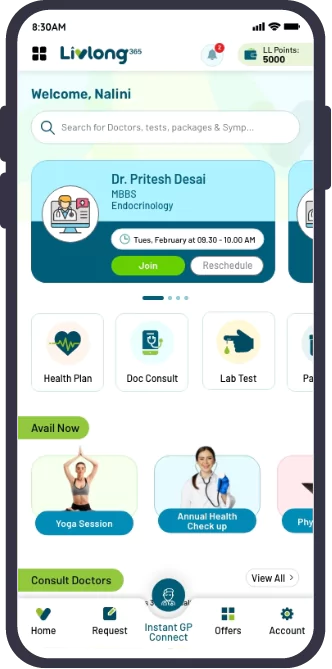Table of Contents
Alzheimer’s disease (AD) is a neurological illness that results in brain damage. It causes a gradual loss of memory as well as affects the ability to talk, think, and perform daily tasks. Some people lose their ability to perform daily tasks during the initial years, whereas others may do reasonably well until much later.
Alzheimer’s disease treatment
Unfortunately, an Alzheimer’s disease cure has not yet been found, but there are certain medicines that can slow the progression of the disease as well as non-drug options for treating its symptoms.
Current Alzheimer’s disease treatment approaches focus on assisting patients in maintaining cognitive performance, managing behavioural symptoms, and treating the underlying disease process.
There are several medicines approved for the treatment of Alzheimer’s disease. These may temporarily reduce symptoms while also making the disorder easy to manage.
Medications for Alzheimer’s disease patients to maintain mental function
Donepezil, Galantamine, and Rivastigmine are medications used for early-stage Alzheimer’s disease treatment. Rivastigmine, Donepezil, and Memantine patch, as well as a combination of Donepezil and Memantine medications, are used to treat the moderate-to-severe symptoms of Alzheimer’s disease. These medications might not work for everybody or have a significant impact; however, most experts believe they are worth a shot.
Medications to treat the underlying disease condition of Alzheimer’s disease
Aducanumab is the first FDA-approved disease-modifying therapy for Alzheimer’s disease, which reduces deposits of amyloid in the brain and may assist in slowing the disease’s progression; however, its impacts on clinical outcomes such as cognitive decline or dementia progression have yet to be seen.
Management of Alzheimer’s disease behaviour
Agitation, sleeplessness, anxiety, wandering, and aggression are common Alzheimer’s behavioural symptoms. Certain antidepressants, antipsychotics, anticonvulsants, and anti-anxiety medications may be beneficial in the treatment of these conditions.
Family and Alzheimer’s disease care support
A care plan can be developed by your doctor, family, and loved ones. This may contain numerous different forms of assistance that are also available to assist people with Alzheimer’s disease in living as autonomously as possible, including making certain changes to your home setting to make it simple to remember daily tasks and move around in the home. Also, following up with visiting the doctor regularly to assess the patient’s response to medication, looking for possible new problems, monitoring how symptoms change, and providing continuous learning to the family are some measures that you can consider. Alzheimer's disease currently has no cure. Medication, alternative treatment options, and changes in lifestyle may help patients with Alzheimer's disease, slow the progression of the disease, and help the patients maintain cognition for a relatively longer period of time. Mainly, Alzheimer’s is diagnosed with the help of brain imaging, which includes MRI, brain CT, and PET, but blood tests can help your doctor find out other possible reasons for memory problems and confusion, such as thyroid disease or vitamin deficiencies. Every person experiences a different course of Alzheimer's disease, and life expectancy after diagnosis is determined by a variety of factors, such as the stage of the disease when it was identified, family and medical history, and personal medical history. Most people live for 8–10 years after being diagnosed with Alzheimer's disease. Some patients can survive for up to 20 years after their diagnosis.
Treatment for Alzheimer’s Disease FAQS
How is Alzheimer’s treated?
Is a blood test required for Alzheimer’s treatment?
How long does a person live after already being diagnosed with Alzheimer's?








